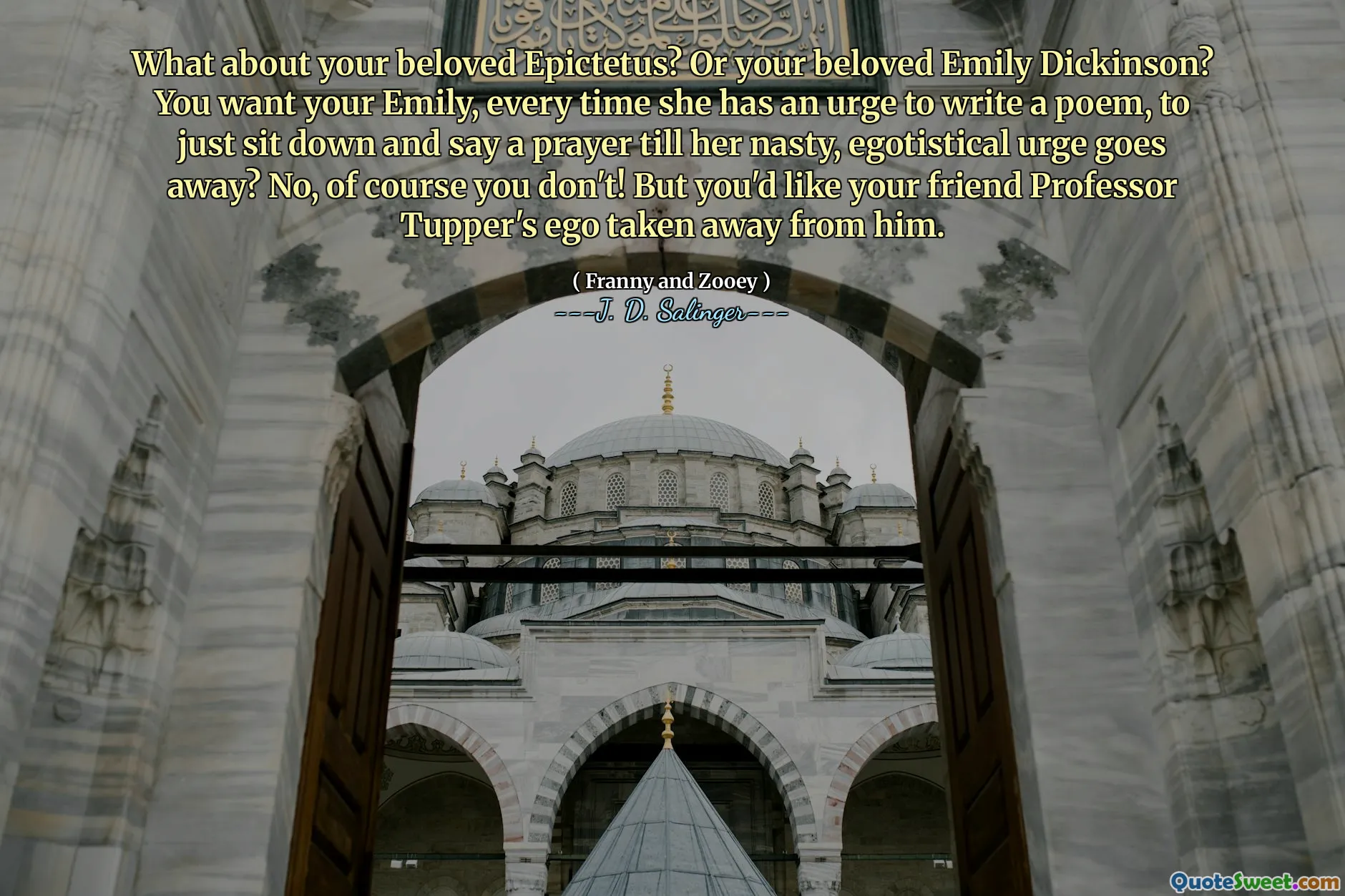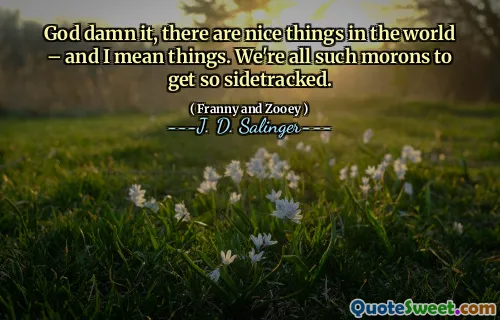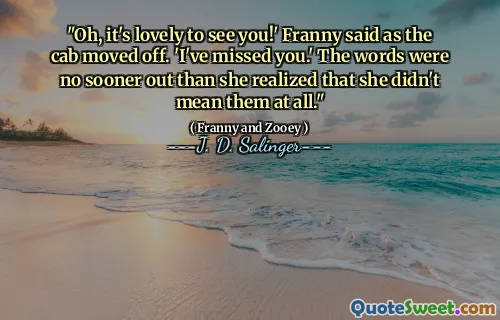
What about your beloved Epictetus? Or your beloved Emily Dickinson? You want your Emily, every time she has an urge to write a poem, to just sit down and say a prayer till her nasty, egotistical urge goes away? No, of course you don't! But you'd like your friend Professor Tupper's ego taken away from him.
In J.D. Salinger's "Franny and Zooey," a discussion emerges regarding the nature of artistic inspiration and the ego's role in it. The speaker contrasts highly revered figures like Epictetus and Emily Dickinson with less admirable examples, emphasizing that no one truly desires for an artist's creative instincts to be suppressed. Instead, the essence of creativity is about embracing those feelings rather than fighting against them. The quote highlights a double standard when it comes to appreciating artists versus those perceived as egotistical. While one may celebrate Dickinson's turbulent emotional drive that fuels her poetry, there's a wish for someone like Professor Tupper to experience a reduction in his ego. This underscores the complexity of human nature, where we value the artistic expression of some while critiquing others' arrogance.
In J.D. Salinger's "Franny and Zooey," a discussion emerges regarding the nature of artistic inspiration and the ego's role in it. The speaker contrasts highly revered figures like Epictetus and Emily Dickinson with less admirable examples, emphasizing that no one truly desires for an artist's creative instincts to be suppressed. Instead, the essence of creativity is about embracing those feelings rather than fighting against them.
The quote highlights a double standard when it comes to appreciating artists versus those perceived as egotistical. While one may celebrate Dickinson's turbulent emotional drive that fuels her poetry, there's a wish for someone like Professor Tupper to experience a reduction in his ego. This underscores the complexity of human nature, where we value the artistic expression of some while critiquing others' arrogance.








